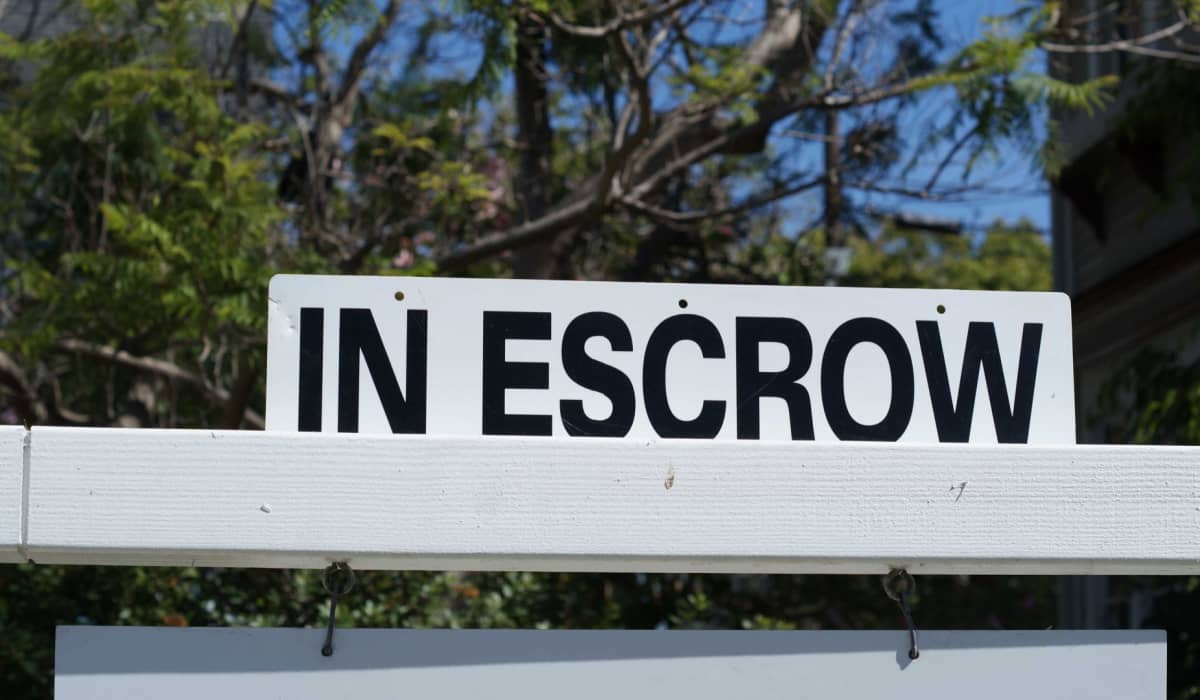
What is an Escrow Account, & How Does it Work?
2/21/2023

It can be confusing and overwhelming to understand the process of buying a home and all of the different financial terms involved. And one term, in particular, tends to be confusing for first-time homebuyers–escrow accounts. So, let’s dive into why an escrow account is important and explain it works.
What Is Escrow? When buying a home, an escrow account is where a third party temporarily holds the money until the condition(s) of the contract or agreement have been met. Using an escrow account protects your deposit because it’s held in a third-party account. The money is only sent to the receiving party when the conditions of the sale are met. Escrow accounts mainly benefit the buyer but also allow the seller to be confident that the money is tangible and available before the sale goes through.
It’s common to hear that houses are “in escrow,” but that doesn’t necessarily tell you much. The phrase “in escrow” means that money and property are actively involved in a transaction and can’t be released until all conditions of the sale are met. If you’re in escrow, you should be in the last stages before the purchase goes through.
After the sale is final, lenders use escrow accounts to pay certain third-party expenses related to your home, such as property taxes and insurance premiums. With mortgage escrow, the annual cost of your property taxes, homeowners insurance premiums, homeowner association dues (if applicable), and other expenses are calculated and divided equally between the 12 months of the year. So your monthly payment will be your actual mortgage payment, plus these additional estimated yearly costs. When you pay your monthly premium, the lender maintains a balance in escrow to pay for these additional third-party expenses on your behalf. Lenders typically review escrow accounts on a yearly basis or when notified of a change in property taxes or insurance premiums, which can increase your monthly mortgage payment over time.
Escrow Accounts for Purchasing a Home
Escrow accounts can be useful in different stages of home ownership and are typically handled by your lender or realtor as part of the process. You don’t typically need to go to your local branch to open an escrow account because it is done as part of the real estate transaction.
Escrow for Deposits When Buying a House
In the process of buying a home, purchase agreements commonly require a good faith deposit from the buyer. This deposit will sit in an escrow account until the sale is finalized. If the contract falls through because of the buyer, the seller will get to keep the money, but if the contract falls through and the seller is at fault, the buyer gets the deposit back.
Escrow For Taxes and Insurance In Home Ownership
Depending on the type of mortgage you have, you may be required to have an escrow account. Should you pay your mortgage through an escrow account, you will pay a fixed monthly payment that covers your mortgage and the cost of your insurance premiums and taxes. If your mortgage is paid through an escrow account, the account will exist until your mortgage is completely paid off.
Why Are Escrow Accounts a Good Idea?
Using an escrow account can offer a variety of benefits if you own a home or are in the process of selling or purchasing a home. It’s rare for a lender not to use an escrow account as part of your real estate transaction, and it is required when purchasing a home with a mortgage. If you are not mortgaging your purchase, there are advantages to using an escrow account.
- Be protected during a real estate transaction: During the sale and purchase of a home, using an escrow account protects both the buyer and seller by ensuring that money is protected until the terms of the sale have been met.
- Protect your deposit during a sale: Using an escrow account ensures that you can get your deposit back if the sale falls through the fault of the seller. If the money is paid straight to the seller, you might not be able to get your money back.
- Takes pressure off you to pay taxes and homeowner’s insurance: If you pay your mortgage into an escrow account, you pay a portion of your taxes and insurance each month. This means you won’t have to scramble to get the money together once a year when these bills are due.
In rare instances, a lender may allow you to waive escrow, but typically that is only when you are buying a home where the loan is lower than 80-90% of the home’s value. The benefits of waiving escrow rarely outweigh the benefits because you lose financial security in real estate transactions and have to handle all third-party payments on your own.
Mortgages Through Arkansas Federal
Depending on the type of mortgage that you’re using to purchase your home, escrow could be required. That’s why it’s important to understand your options a homeowner. Arkansas Federal Credit Union offers a variety of mortgage options for first-home and returning-home buyers. Our team of experienced mortgage consultants can help you find a solution that best fits your needs.
Call one of our branches or apply online today to get pre-qualified and learn more about your mortgage options.

